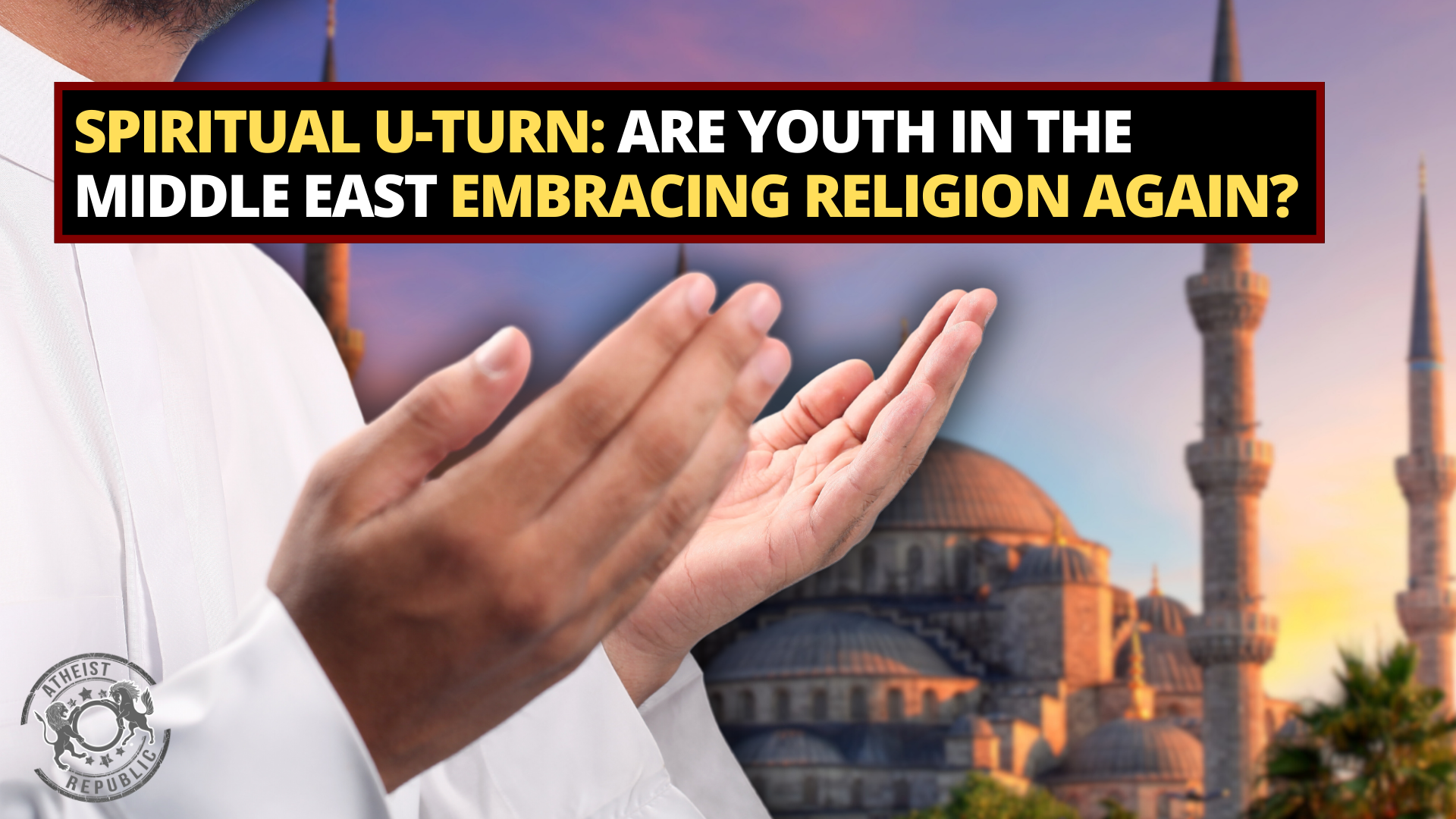
While countries such as the United States are seeing a decline in religiosity and certainty about belief in God, the Middle East and North Africa (MENA) region is seeing a significant resurgence in religiosity, particularly among the country’s youth.
That’s according to the new results of the Arab Barometer’s seventh wave of surveys, conducted between 2021 and 2022. These surveys by the nonprofit research network aimed to get a view of rates of religious observance among those living in the Arab world.
Well, Arab Barometer has released its own analysis of the raw data few days ago, with the following title :
"MENA Youth Lead Return To Religion"
Do you think the Western media will propagate these recent findings ?
(an article in'sha'Allah) pic.twitter.com/YuSfI9KK2W— BHERIA (@BheriaMS) April 9, 2023
The vast majority of the citizens in the countries surveyed by the Arab Barometer described themselves as “religious” or “somewhat religious.” However, significant portions of people identified as “not religious.” Tunisians (27%) and Libyans (24%) were the most likely to say they were not religious, followed by Lebanese (19%). In all the other countries, only one out of ten people or fewer said they were not religious.
The rate of Libyans and Tunisians who said they were not religious in 2021 and 2022 differed from the fifth wave of surveys the Arab Barometer conducted between 2018 and 2019. During those times, 31% of Tunisians and 25% of Libyans said they were not religious.
This trend of increasing personal piety among citizens of countries in the MENA region was also seen in other countries like Algeria, Egypt, and Morocco. Only Lebanon consistently increased the number of people who said they were not religious, rising from 14% in 2018-2019 to 19% in 2021-2022.
@Haqiqatjou made a video based on that article (link in the video as well if you want to read it) : https://t.co/D9wBMO6ime
— BHERIA (@BheriaMS) April 9, 2023
Among those aged 18 to 29, 30% of Tunisians and 17% of Algerians in 2021 and 2022 said they were not religious, compared to 46% of Tunisians and 24% of Algerians in 2018 and 2019. Lebanon remained the only country in the region that saw an increase of people aged 18 to 29 saying they were not religious, going up from 18% in 2018-2019 to 30% in 2021-2022.
The consistent rise of people who are not religious in Lebanon can be attributed to the country’s economic crisis and the failure of its confessional political system, where power is shared and balanced among the country’s several religious groups.
The region not only saw an uptick in religious people but also an increase in religious activity. 62% of Tunisians, 53% of Moroccans, and 44% of Algerians said they listen to or read holy books like the Bible or the Quran daily in 2021 and 2022, compared to 49% of Tunisians, 34% of Moroccans, and 40% of Algerians.
Even Lebanon saw an increase in people who said they listen to or read religious texts daily despite an increase in people who say they’re not religious, going up from 37% in 2018-2019 to 44% in 2021-2022. The number of people who read or listen to religious texts daily remained the same in Jordan at 69%, and it even decreased in places like Libya (59% in 2018-2019 to 53% in 2021-2022) and Iraq (68% in 2018-2019 to 64% in 2021-2022).
The survey results by the Arab Barometer showed that personal piety across different regions could decrease and increase over time, even as other regions like Europe and North America showed signs of a steady decline in religiosity.
